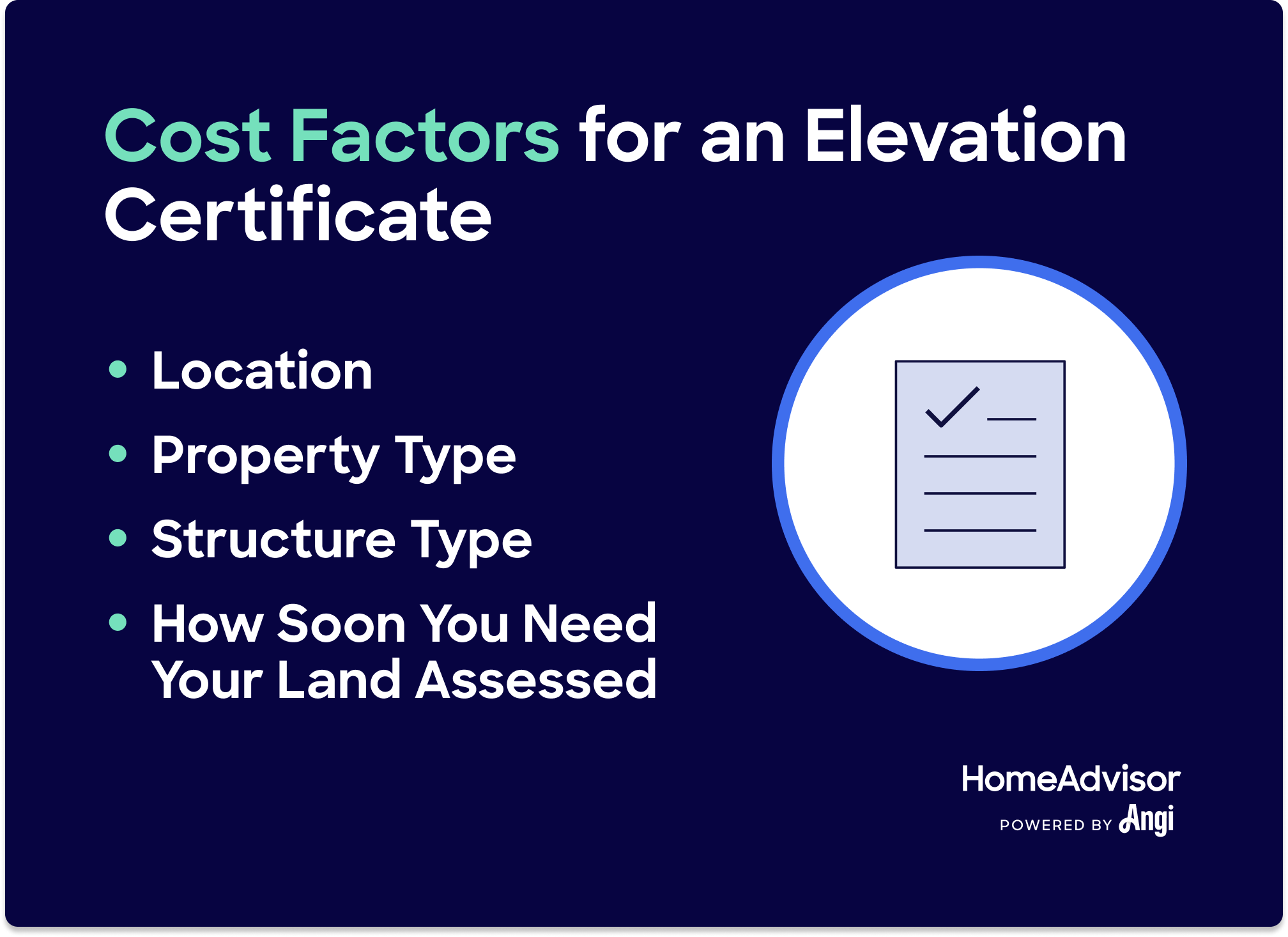
HomeAdvisors Art or Antique Appraisal Cost Guide covers which factors impact cost, the types of appraisals and whether or not you can do it yourself.


The average flood elevation certificate costs $600. Depending on the property type and location, costs can run as low as $170 or high as $2,000 or more.
A flood elevation certificate determines the risk that flooding will impact your home. Some insurance companies require this certificate, but many homeowners choose to get one because it can save them money on their flood insurance premium.
| Average Cost | High Cost | Low Cost |
|---|---|---|
| $600 | $2,000+ | $170 |
A flood elevation certificate (EC) is a document that proves your property meets minimum elevation requirements. While not every community needs an elevation certificate, many do, particularly in areas at risk of flooding. In these circumstances, an EC is necessary to prove that the buildings are compliant with local floodplain management guidelines.
Properties usually get their EC during the permitting phase of the construction process. However, that's not always the case, so contact your local zoning office to find out if your home has or needs a flood elevation certificate.
An elevation survey is another name for an elevation certificate, and it’s different from a land survey, which gives you a legal document of your property lines. A land survey costs $510 on average.
Flood elevation certificates are also called Federal Emergency Management Agency (FEMA) elevation certificates. The reason for this is because homeowners who live in a FEMA-designated 100-year floodplain have to get this type of certificate. However, you can still get an elevation certificate even if you don’t live in a flood zone.

Certificate of elevation costs range anywhere from $170 to $2,000 or more, depending on a number of factors. The most significant variables are your living location, property type, type of structure, and when you need your elevation certificate.
Living in an area that experiences a lot of flooding usually means it's less expensive to get a certificate because land surveyors are already in the area performing EC evaluations regularly. But if you live in an area with a higher cost of living, land survey prices for flood elevation are likely to be higher than in other states.
Certificates for residential properties typically cost less than commercial properties. Additionally, the survey price increases with the plot size, as it takes more time to survey a 10-acre property than a 1/2-acre one.
Basements, crawl spaces, and other tricky-to-access areas raise the price. Simple properties take less time to survey, so you pay less in labor time.
You'll pay a higher price if you need a rush on the certificate, such as when buying a house. But if you give your local land surveyor plenty of notice, you'll pay less as you won't have to pay an emergency or rapid response fee. You may also get a good deal if you book your survey during less busy periods.
One of the biggest homeowners insurance myths is that insurance automatically covers flooding from a natural disaster. In reality, homeowners insurance usually covers damage from internal floods, like a broken pipe. A flood elevation certificate is beneficial because it could save upwards of $400 per year on flood insurance rates. This makes flood insurance more affordable, saving you money later on if your home experiences flooding.
Even in the desert, less than an inch of rain can lead to flooding. Getting flood insurance beats paying the cost to repair water damage out of pocket, which can run up to $4,760. You may also have to pay another $1,360 to $4,940 for the price to remove standing water if uninsured.
Unlike most other household projects, there’s no DIY option for a flood elevation certificate. You’ll have to contact a certified land surveyor or National Flood Insurance Program coordinator to perform the inspection and issue the certificate. Find a local elevation certificate surveyor to learn more.